Extremely satisfied with our account team. They’ve continued to step up to the plate and adapt to our brand’s evolving needs. I’ve already recommended Directive to other companies and will continue to.
– Lawrence Gross | Director of Digital Marketing, Eden Health
The Challenge
Eden wanted to grow their pipeline significantly coming into 2022. Google was one of their top spend channels, but not always the most efficient from a high-quality lead-driving perspective, so Directive needed to find a way to scale and lower cost per lead at the same time — not exactly an easy task.
Directive decided to test the utilization of automated bid strategies as opposed to enhanced CPCs and manual bid adjustments which were previously used to adjust bids. By leveraging more sophisticated campaign bid adjustments, we would try to outperform the usual costs of scaling a pipeline.

The Strategy
Directive split Eden Health’s campaigns into three portfolios based on historical performance (none, low, and high). This allowed Directive to continue optimizing budget allocation based on which groups of campaigns were driving the best results before the test.
This made it a matter of doubling down on wins instead of building from scratch. The hypothesis was that by adopting portfolio bid strategies and using the maximize conversions goal with a tCPA, Directive would be able to optimize Eden Health’s campaigns to achieve both the lower CPAs and a greater volume of leads they were looking for.

Portfolio 1 Performance “No Conversions”
Portfolio 1 targeted the segment that showed no historical conversions in the last 30 days leading up to the test. Despite driving fewer clicks and impressions, due to lower spend, Directive was able to drive 62% more leads, at an 81% lower cost per, thanks to a 357% increase in conversions rate.
Portfolio 2 Performance “Low Conversions”
Portfolio 2 targeted the “low conversion rate” audience: less than 0.70% over the last 30 days leading up to the test. Again, we saw less traffic, with a slight decrease in spend, which drove a higher CPC during the testing period.
However, Directive also saw a 77% increase in conversions, at a 45% lower cost per. And an overall increase in conversion rate of 171%. So the increase in CPCs paid off by allowing us to drive better traffic to our ads.
Portfolio 3 Performance “High Conversions”
The 3rd Portfolio targeted a segment of high conversion traffic – greater than 0.70% conversion rates over the last 30 days leading up to the test. For this portfolio, Eden saw traffic increase with the increase in spend (as Directive allocated more budget to the high conversion rate campaigns). Conversions increased 113% with a 38% decrease in cost per, and a 65% increase in conversion rate.
The Results
Directive decided on initial tCPA targets by looking at Google data from the last 30 days, and modifying it slightly to fit Eden’s goals (in most cases, the CPA over the last 30 days was higher than the goal).
Comparing the test period to the previous date range, the data is clear. Each portfolio saw the expected results—a better CPA and a higher volume of leads—despite being compiled of different content and spend levels. Even with a reduced investment and smaller traffic over the testing period, Directive increased conversions by 78%, with a 52% lower cost per, and a 181% increase in conversion rate account wide.
If you know how to properly target your most valuable leads with a truly customer-led approach to your strategy, you don’t need to choose between optimizing and maximizing. The two can go hand in hand if you are tailoring your campaigns to the value of your prospective customers.
Reverse engineering your campaigns, your bid adjustments, and your optimizations based on these Lifetime Value analysis is the crux of any scalable growth strategy.



